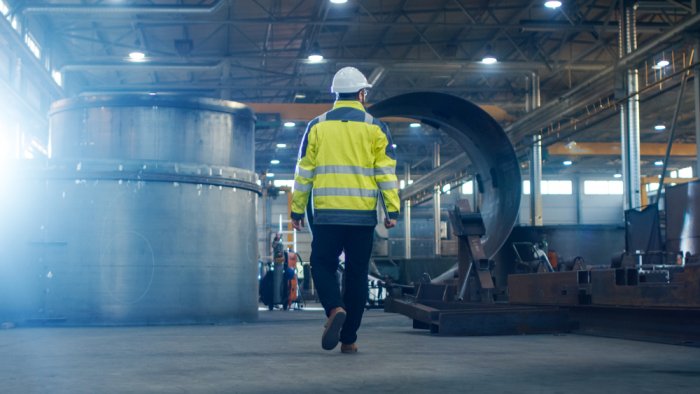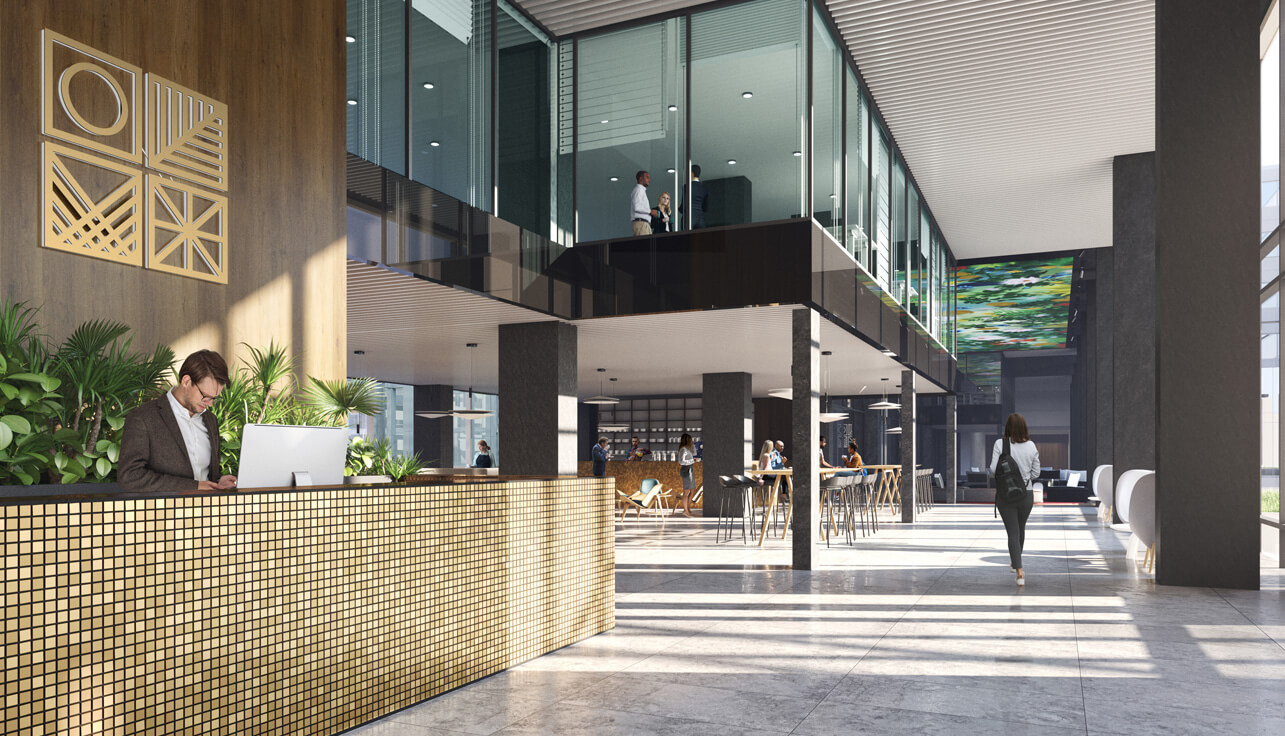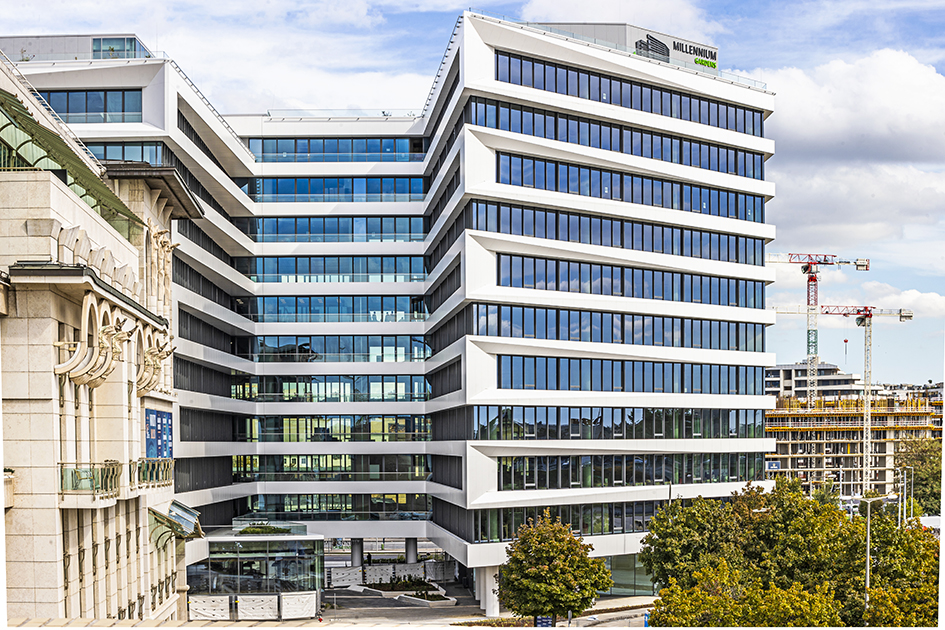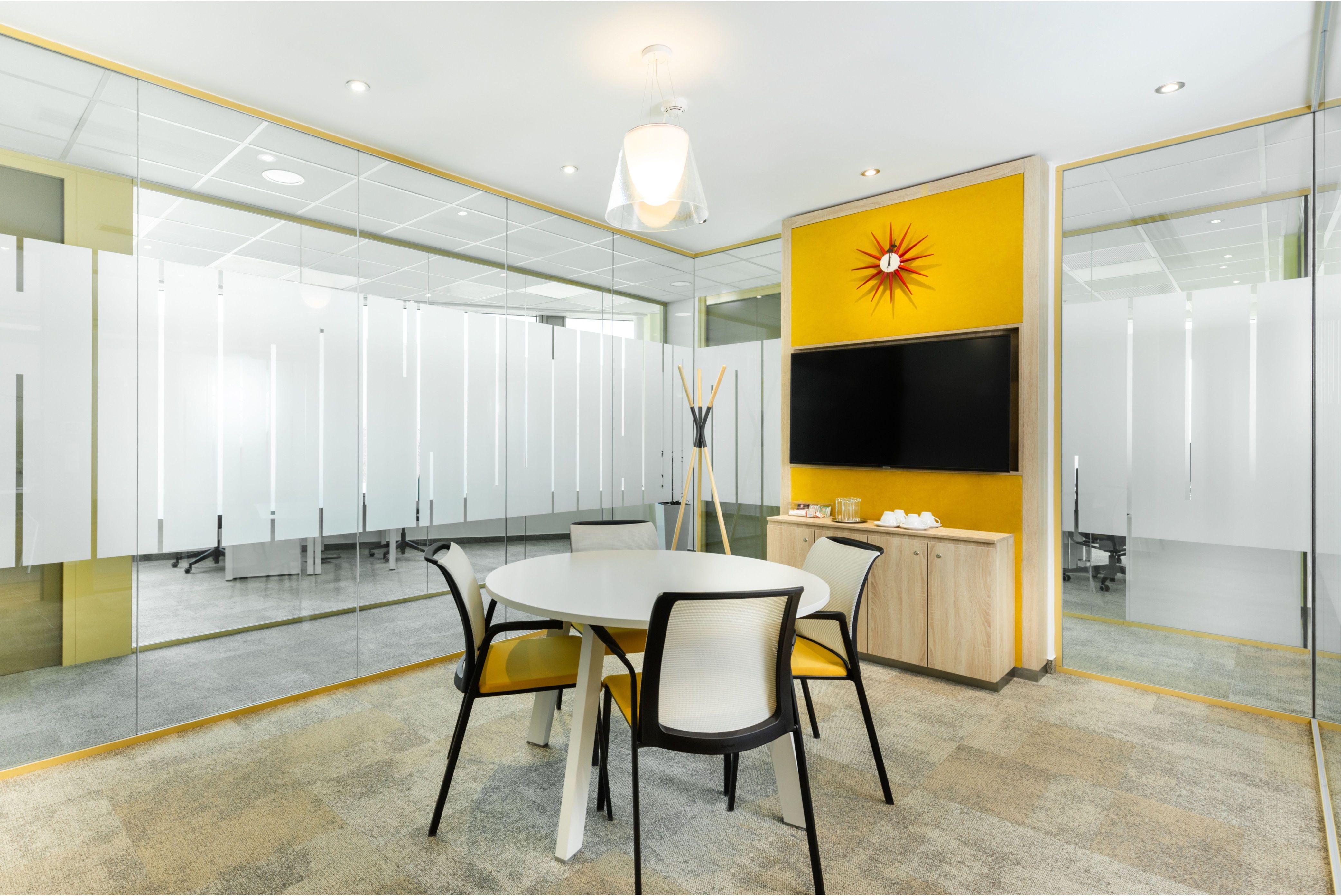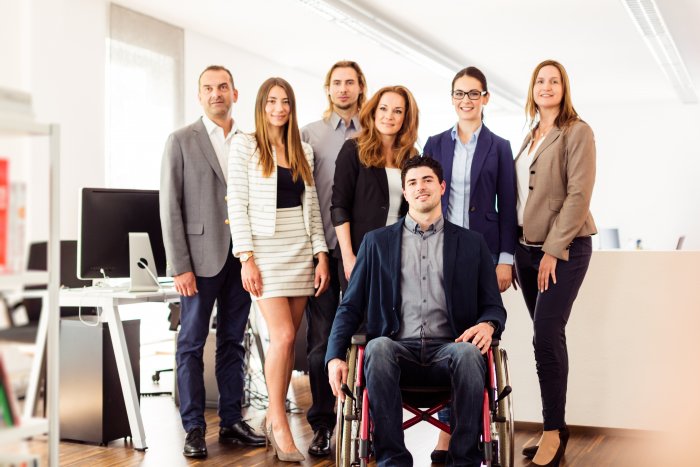Worker Requirements Becoming More Sophisticated
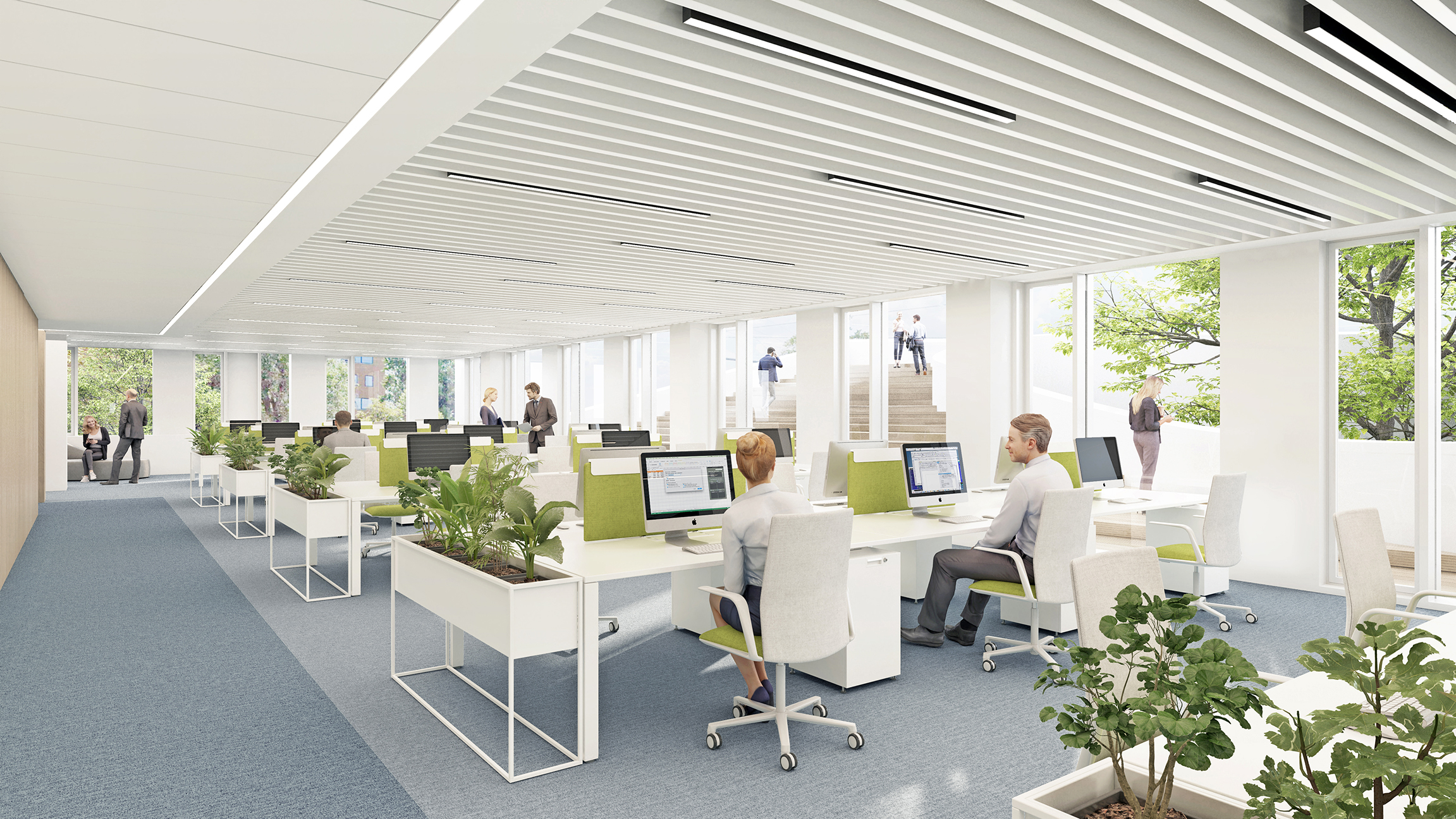
Artist’s rendering of an office interior at Atenor’s BakerStreet prpoject, which has Breeam “Excellent” accreditation.
The office environment, its amenities and location are an intrinsic part of any project concept, design, and leasing strategy. This is in reaction to changing and ever more complex tenant and, in turn, staff demands. Sustainability accreditation from third-party organizations such as Breeam, Leed and Well have a range of requirements that are increasingly the norm for high-end developments and a basic expectation for tenants and staff.
The design, development and property management of offices in line with sustainability regulations while also responding to tenant and staff demands. This increasingly includes the internal atmosphere and its effect on the health and well-being of workers. That, in turn, can influence staff retention in what remains a tight labor market and generate opportunities for increased productivity.
“In a rapidly changing world, people crave pleasant places; they expect the work environment to be almost as cozy as their personal environment in the home office. Casual meeting spaces, work cafés, and couches in the office are very popular instead of rigid meeting rooms or lines of open office workstations,” says Regina Kurucz, a sustainability consultant and Well assessor.
According to job satisfaction surveys, their work environment plays a significant role for more than half of all employees. Employers should, therefore, adapt to new trends in creating attractive office spaces. Not only is an emphasis on focused and creative work important, but also on an environment that encourages collaboration and team meetings, says consultancy Colliers.
“Employers who choose to return to full in-office work structures will need to be able to offer something extra. For example, in addition to an attractive working environment, they can also offer high-quality technological and ergonomic facilities, which in most cases they cannot provide for employees who work from home,” says Jana Vlková, director of workplace advisory and office agency at Colliers in the Czech Republic.
“In addition, a strong company culture will help to create a sense of belonging between the employee and the company. However, this is equally important for companies that maintain a hybrid working model,” she adds. Leading developers also share these sentiments.
Flexibility is Crucial
“Today’s workforce and tenants demand office spaces that offer flexibility of individual and collaborative working areas: in both terms, data suggests that the investment in transformation will pay off in the form of happy, engaged employees,” says Aurelia Luca, executive vice president of operations for Hungary and Romania at Skanska.
“Additionally, amenities such as relaxation or fitness zones, healthy food options, and comprehensive cycling facilities, including showers, are becoming essential. Enhancing these offerings with features like a rooftop running track and green terraces, similar to those found at [our development] H2Offices, further elevate the workspace, offering unique and engaging experiences for tenants,” she adds.
Well-assessor Kurucz points out that developers are paying more attention to community spaces within projects.
“The Well Building Standard recommends a space that is a minimum of 186 sqm, provides quality seating and is easily navigable for individuals of all abilities. For example, the Well pre-certified and Access4you certified Academia Offices [in Pest’s District V] have a beautiful lobby as a community space, with plenty of natural light and biophilia. The lobby and the café are open to the public during office hours,” she notes.
Restaurants and cafés are still the most sought-after services in-house, along with accessibility to green spaces such as an internal garden or green rooftop, gyms, flexible/rentable meeting rooms or conference rooms, bicycle and e-bike storage, electric car charging stations, high-speed internet and advanced technology infrastructure according to Csaba Zeley, managing director of ConvergenCE, the developer of the abovementioned Academia Offices, in partnership with Europa Capital.
Trust and Blackmail
Ottó Feuertag, owner of Europa Design and co-founder of the Well-being Association, believes that hybrid working practices will settle at 40% home office and 60% at the corporate office; we will never again see 100% of staff back in the company HQ.
“The working model mainly depends on the trust level and corporate culture. In Hungary, employees are more demanding and ‘blackmail’ the employers as to why they will not return to the office, or under what conditions,” he argues.
“This results in an unpredictable flow of workers to the office during the week, resulting in peeks on Tuesday, Wednesday and Thursday, and a very low utilization of office space on Mondays and Fridays. This is a massive waste of resources. I think the hybrid work mode needs more support from the HR and FM [facility management] side; therefore, I see a huge market for proptech in this task. The other challenge is to retain a quality workforce, and the well-being strategy is there to help,” Feuertag adds. It is a point Kurucz is happy to echo.
“We see an increasing demand for a variety of healthy food options. You are what you eat! Therefore, people require more information on the food they consume. Also, the number of people on a special diet, whether due to food intolerance or weight loss goals, is also increasing,” she points out.
“Our buildings, the places and spaces where we spend the vast majority of our time, hold the key to protecting our families, businesses and the wider public. A wealth of rigorous research highlights the profound role buildings play in promoting human health, preventing disease and supporting well-being,” Kurucz says.
“Several key factors within buildings (including indoor air quality, water quality, thermal comfort, acoustics, lighting, materials, and access to physical activity and healthy foods) have a direct influence on shaping positive health outcomes. According to a large and growing body of research, by adopting healthy building practices, we can drive numerous health, economic and societal benefits,” she concludes.
This article was first published in the Budapest Business Journal print issue of January 26, 2024.
SUPPORT THE BUDAPEST BUSINESS JOURNAL
Producing journalism that is worthy of the name is a costly business. For 27 years, the publishers, editors and reporters of the Budapest Business Journal have striven to bring you business news that works, information that you can trust, that is factual, accurate and presented without fear or favor.
Newspaper organizations across the globe have struggled to find a business model that allows them to continue to excel, without compromising their ability to perform. Most recently, some have experimented with the idea of involving their most important stakeholders, their readers.
We would like to offer that same opportunity to our readers. We would like to invite you to help us deliver the quality business journalism you require. Hit our Support the BBJ button and you can choose the how much and how often you send us your contributions.




